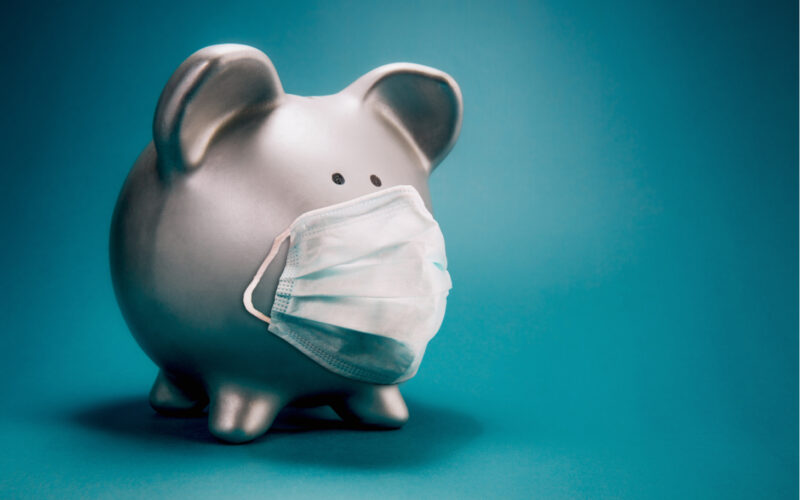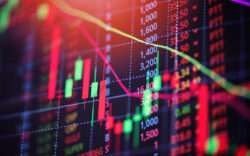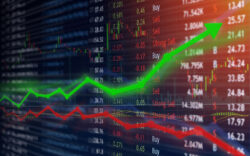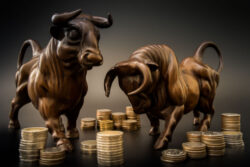Two weeks ago, I warned you about the risk of a recession. And what it would mean for asset prices. Since then, that risk of a recession has continued rising dramatically.
First the media caught on. Then the economists. Then financial markets. And now, even the central bankers are aware economic growth is struggling. Despite persistent inflation. You might, if you were feeling particularly snarky, call it stagflation.
Here’s what I wrote on 24 August: “I’m getting worried the global economic recovery from the pandemic is about to go very sour. And with it, asset prices. In fact, a recession may well be on the horizon.”
And we looked in detail into why this would be the case. Today, I’ll update you on the recent developments which have me even more worried.
As I write this, Bloomberg’s market wrap has this headline: “Stocks, Futures Fall on Worry Over Growth Outlook”.
But that’s a bit vague.
The Daily Mail has this scoop: “Bank of England warns recovery is ‘flattening out’ but there is still an interest rate rise on the cards”. What do you get when economic growth is slowing and interest rates are raised?
A recession.
Bank of England governor Andrew Bailey also “begged 2 million side lined workers to return to the jobs market as he warned that severe staff shortages are holding back Britain’s economic revival.” Well, when monetary policy isn’t working, you might as well try begging.
But what do you get when people in the labour force don’t return to work because of furlough, welfare, over-taxation and low wage growth adjusted for inflation? If the economy can’t grow because of an artificial labour shortage, you get…
A recession.
The taxation issue is of course running hot in the press. More taxes should mean less economic activity than would otherwise occur, because it disincentivises economic activity. The old austerity bogeyman is back, alongside the low economic growth he creates. If growth gets too low, it could mean…
A recession.
The Telegraph reckons that the same tax constraint is playing on labour too. “Young graduates to pay 52pc effective tax rate after National Insurance rise”. I’m assuming that it means “marginal” not “effective” tax rate, but either way, if the government is taking half your money, are you going to work, or work harder? And what do you get when labour isn’t incentivised to work?
A recession.
Well, first you get huge misses on jobs data, like what we saw in the United States recently.
A host of investment banks there have supposedly issued warnings for the stock market, partially over lower economic growth outlooks.
If economic growth falls low enough in the consumption department of the global economy, we’ll get…
A recession.
Over in China, the production department of the economy, one of the world’s most indebted companies is on the verge of default. Could this be the straw that breaks the camel’s back, as Thai property developer Somprasong Land was for the Asian financial crisis, which saw entire governments default?
If that did happen, the world would surely have…
A recession.
Professor Chris Whitty is warning about a bad flu season. Meanwhile, the story about an October firebreak lockdown has now been officially denied, all but confirming that it’s on the table. What could you get in another lockdown or a spectacular surge of flu cases because of suppression for 18 months?
A recession.
Of course, all that really matters in the end these days is stimulus. And when the government is hiking taxes and the central bank is talking of hiking rates, what do you think we’ll get?
A recession.
This is especially important to the stagflation problem because the central banks could be forced to choose between their various official and unofficial mandates of inflation, unemployment and GDP growth.
If inflation hit 4% as the Bank of England anticipates, and unemployment remains bizarrely low, but GDP stops growing, what would you do, as a central banker?
If the central bankers raise rates to rein in inflation, I think we’d get a… recession.
Specifically, we’d get a stagflationary recession with oddly low unemployment.
In my article three weeks ago which first warned about a recession, I explained why one is so likely. It will take time for the economy to reshuffle itself from the withdrawal of stimulus and the pandemic restrictions. Just as, apparently, it takes time to become a HGV driver, it’ll take time for the rest of the economy to adjust to the new normal.
It also takes time for businesses that have only survived because of the pandemic assistance to go bust, sell off their assets and for new companies to buy up those assets and begin doing something new and different. Or just do a better job.
Perhaps I can call it capital reformation – the process by which companies readjust what economic activity they pursue with their capital. While this transition occurs, economic activity is likely to be lower. Which means?
A recession.
I’ll let Bloomberg sum it all up: “Stocks declined along with U.S. and European equity futures Thursday as investors continued to fret over a slower economic recovery and the prospect of reduced central bank stimulus.”
Read that again though. Slower economic recovery and reduced stimulus… hmm. Quite the combination.
So, what are the chances of a recession now? I don’t know, but I can tell you they’re rising fast.
All of this justifies the cautious and conservative positions taken by Nigel Farage and Rob Marstrand in their UK Independent Wealth. But I’ve been told that’s about to change, with a surprising new set of ideas to hit the press.
To make sure you don’t miss them, click here.

Nick Hubble
Editor, Fortune & Freedom




